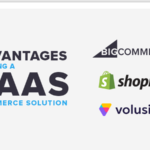The man / fellow / guy was looking / searching / scouting for the perfect / ideal / excellent chair / bench / recliner.
That’s how link building used to look. Spinning one, poorly written article and submitting it to 20 different article submission sites. The job of an assistant SEO was dull! I remember it being so dull that one time I wrote an article about furniture carpentry with the author name Jesus. Content didn’t matter. Managers just wanted anything they could shove keywords and links into and submit out. For a creative writer who finds the written word somewhat sacred, it was agony. Article spinning, niche directories, niche homepage links (on sites you couldn’t imagine anyone ever wanting to stay on), the types of link building tactics being used on the ground 10 years ago were very different to now. With a caveat, some agencies do still use these kinds of tactics, perhaps dressed up slightly different.
If you decide to purchase “high quality links” from fiver for example, you are often given a list of what is effectively article submission sites. Or, sometimes there will be an editorial process and your link will come under the guise of a fake author. If those lists are available that means people are still buying.
Good agencies & in house teams, the ones who are building long term success for their clients are using different tactics. The wordsmith in me is leaping for joy. These tactics are less about link building and more about creating really great content. Content which is so good that other people want to link to it.
Not to say that the content marketing machine is create, publish, hope for the best. Content still needs to be promoted and put into the hands of the people who will want to reference and link to it.
But content leads.
With that comes an increase in competition as well.
It’s kind of flipped things on it’s head a bit.
Previously you were asked to just write anything. Now you’re supposed to write a symphony.
In this competitive landscape the emergence of AI technology should be music to your ears, anything which can give your content the edge is worth investing in. Particularly AI in relation to creating great content which in turn is going to win you those high value links.
AI technology is all around us now, you probably use it to time your eggs “Alexa, timer 2 minutes”.
According to this report from Narrative Science 62% of organisations will using AI by 2018.What’s more, 38% of the group that was surveyed are already using AI.
Marketers are using AI to help them bid more intelligently on PPC campaigns, to provide audiences with a personalised user experience, to speak with visitors as customer service agents. AI has offered its services in pretty much every facet of marketing.
AI clearly is the future of Marketing.
For instance, instead of hiring a Social Media Assistant to research trending posts for your Twitter account, why not hire Rocco? He will seamlessly integrate with your slack account and provide you with unlimited content suggestions. Which, he can then tweet out with a click of a button.

He does need a little bit of teaching. With machine learning it is just that, learning. It needs data, and to understand the type of content you are sharing already in order to be successful. Rocco seemed to be very interested in technology and bitcoin, not so much SEO or content marketing. These nuances take time for AI technology to learn and understand. But, it’s pretty cool getting content suggestions from a Robot.
The power of AI and Content Marketing goes a lot deeper than tweeting out articles. Market Muse uses AI to enable marketers to create and optimize content with semantic search.
Google likes content which covers a topic really well. Semantics is one way that it can do that. Instead of thinking about the synonyms for a single word like you did in article spinning – which doesn’t create any extra value for the audience. Market muse will help you identify topic related keywords. Which keywords does Google expect you to be covering in this post.
Google related search and keyword suggest are methods content marketers are using right now to create even better content. But they don’t quite capture the full breadth of possibilities.
Google Autosuggest

Google related Search
Not only do you get a wider range of keywords but your content is scored against your competitors. Raise your Market Muse Score & the theory is your ranking positions will also increase. Of course, content is just one part of the equation here. Content comes first, then links.
How can AI help marketers with link building?
We aren’t at the stage where AI technology can actually go out and build links for you, and we probably won’t ever get there. Technology like that in a content is king world is unlikely to last long.
Instead of thinking about AI technology managing the entire link building process. Think about how it can assist your team at each stage.
Qualifying bloggers at a deeper level
One of the keys to outreach and building relationships in order to drive earned links is relevancy. How do you find relevant bloggers at a more nuanced level than niche. Traditionally it was only possible to conduct an outreach campaign by searching for bloggers and influencers via a topic i.e.
- Online Marketing
- Food
- Lifestyle
You might break this down further
- Online Marketing
- Content Marketing
- Social Media Marketing
- Paid Search Marketing
But what about all of the lesser known micro influencers with small but deeply connected and engaged audiences who write on a wide range of topics and have varied interests.
A lifestyle + fashion blogger for instance who also has a passion for history and knows a lot about Henry VII. How would you know this and be able to leverage this kind of connection for your historical campaign if you didn’t use data?
There are billions of pieces of data to mine and go through. AI technology like Watson Analytics could be the answer. Through using software like this you can understand the nuances of topics that influencers talk about and what they, and their audience really care about above and beyond a generic category label.
Qualifying their authority
Once you’ve found an influencer who is aligned with your campaign and client message, how do you know how much influence they really have? There are a ton of metrics to look at now, tools like, Moz, Majestic, Ahrefs provide much of this data but how do we analyse it with any amount of accuracy?
This is where AI technology can help. For example, Rulex can help you predict what the outcome of your campaign will be before you even execute it. How do you make decisions about which platform to reach out to and connect with?
Do you go for the higher Domain Authority platform but which has slightly less content already existing on your topic. Or, do you go for the smaller, niche site that has more engagement but less links pointing in? Up until now these types of decisions are made multiple times a day based on our own experience and bias. The human brain is easily swayed.
Read an article about domain authority in the morning, it could be totally unrelated to the topic of outreach or content marketing but your decision at this moment will be affected. Humans weren’t designed to be rational and whether you are aligned with this article which thinks we are better for it or not. It is clear that some decisions are better made by AI.
The future of marketing is AI and its role to play in link building is going to be an exciting journey which the SEO industry will no doubt capitalize on.








